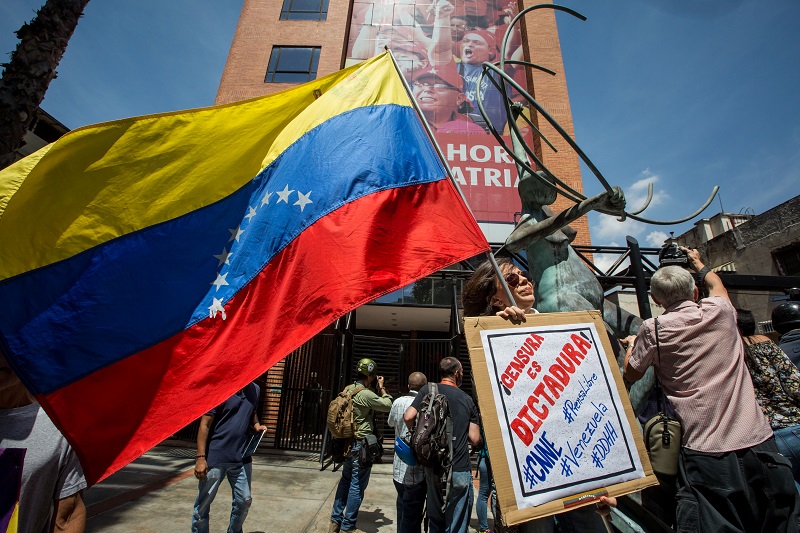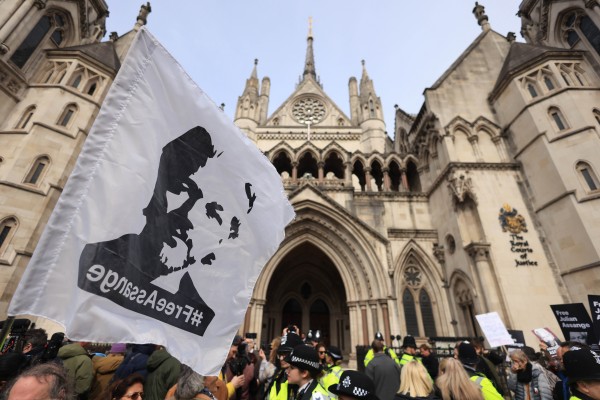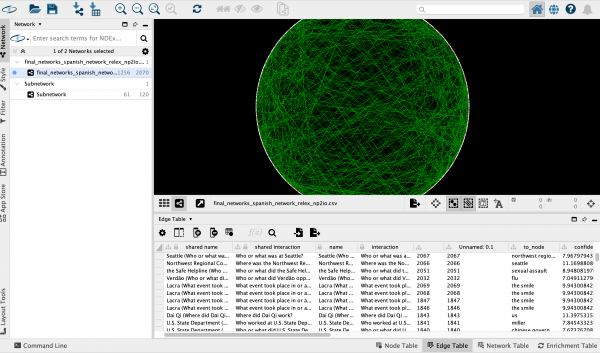The International Press Institute (IPI) today condemned efforts by Venezuela’s government to block CNN en Español, which officials accused of broadcasting “war propaganda” after it reported claims that Venezuela illegally sold visas and passports to individuals with possible links to terrorism.
The broadcaster was taken off air for at least 70 days on Wednesday after Venezuela’s National Commission for Telecommunication (Conatel, in Spanish) announced the start of an administrative procedure against it, accusing the broadcaster of attacking peace and stability in the country.
Yesterday, Conatel Director General Eloy Méndez said that state agencies were taking further steps to also block the transmission of the channel online. Méndez justified the decision as a preventative measure and argued that it did not amount to censorship.
The decision followed a move Wednesday by CNN en Español, a major news outlet in Latin America, to offer a free live signal on YouTube and news links on CNNEspanol.com in reaction to the ban.
IPI Director of Communication and Advocacy Steven M. Ellis condemned the block.
“Given its timing on the heels of major allegations of government wrongdoing, the move to block CNN can hardly be viewed as anything other than an attempt to silence it for reporting critically,” Ellis said. “That represents an unacceptable attack on media freedom and on Venezuelans’ right to share and receive information. We urge authorities to reverse course and to lift the block on CNN en Español immediately, and to allow all journalists to report freely.”
The Venezuelan government’s accusations that CNN en Español aired war propaganda and instigated religious, racial and political hate follow a Feb. 6 report that Venezuela illegally sold visas and passports from its embassy in Iraq, and that buyers included people who could have ties to terrorism.
The broadcaster’s investigation, which was partly based on the testimony of a former embassy employee, also implicated Venezuelan Vice President Tareck Al Aissami. On Monday, the United States imposed sanctions against Al Aissami, accusing him of involvement in the drug trade.
On Sunday, President Nicolás Maduro had criticised CNN en Español in his weekly TV program, exclaiming that he wanted it out of Venezuela.
Foreign media have reported that it is getting increasingly harder for journalists to obtain visas to report in Venezuela. Last weekend, two Brazilian journalists who were attempting to report on a project linked to Brazilian construction company Odebrecht, which is accused of bribing government officials around the world, said they were expelled after being detained for hours.



